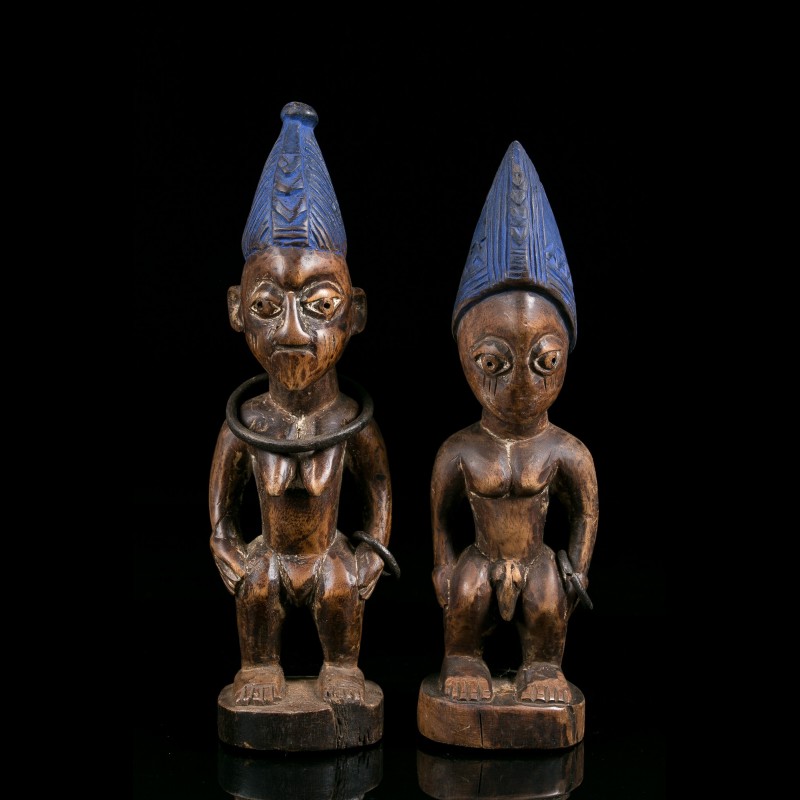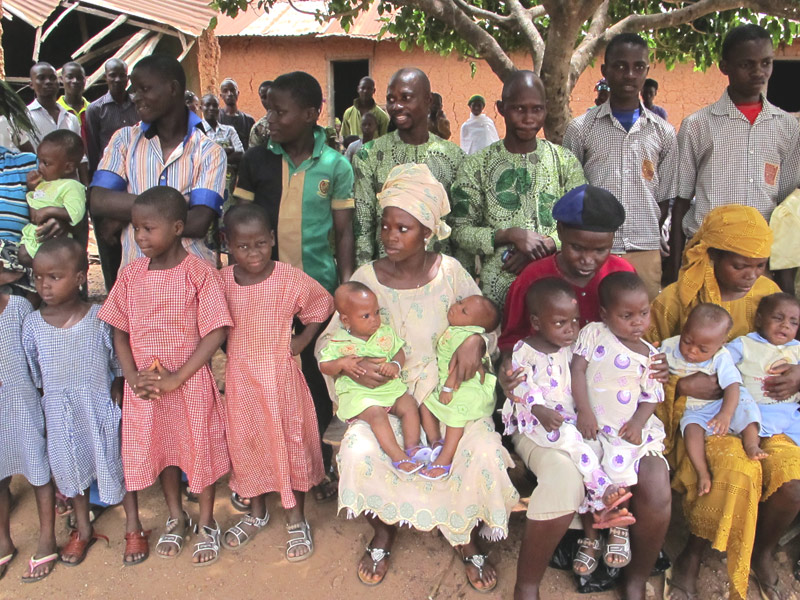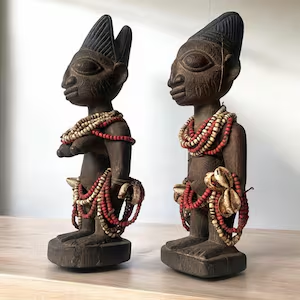Have you ever heard of a tribe that worships twins? It might sound like something out of a fantastical tale, but among the Yoruba people of southwestern Nigeria, this belief is very much a reality. Unlike many cultures where twins were historically seen as omens of misfortune, the Yoruba people not only embrace twins but elevate them to almost divine status. Their cultural and spiritual connection to twins is deeply rooted in their traditions, mythology, and way of life.
In the past, the birth of twins was often feared and misunderstood across many parts of the world. Even in Nigeria, some tribes viewed twins as unnatural, even malevolent, and resorted to the tragic practice of eliminating them. The Yoruba, however, stood apart. To them, twins were magical beings, a blessing from the heavens, and an earthly manifestation of divine powers. This reverence stems from their belief in Ibeji, an Orisa—one of the deities in Yoruba cosmology—sent by the Supreme Being, Olodumare, to aid humanity.
Ibeji represents fertility and prosperity, and in Yoruba spirituality, this divine pair shares one soul, making twins earthly embodiments of this powerful entity. The very name “Ibeji” translates to “double birth,” though it’s often interpreted more poetically as “double blessings.” The Yoruba also affectionately call twins “Ejire,” meaning “two persons that rhyme,” a lyrical nod to their inseparable and harmonious nature.

The mythology surrounding Ibeji is as enchanting as the twins themselves. One of the most cherished tales involves Yemoja, the beautiful and compassionate goddess of rivers and motherhood. The story goes that Yemoja gave birth to twins, whom she adored with all her heart. But as myths often go, tragedy struck, and one of the twins died. Yemoja, overcome with grief, carved a wooden statue to replace her lost child. Through her profound love and the intervention of divine magic, the wooden figure came to life, reuniting her twins. This act of restoration and eternal connection birthed the Ibeji myth.
Even today, this story is still a popular tale amongst the Yoruba people. In traditional households, when one twin dies, a figurine called Ere Ibeji is created by an Ifa priest or diviner. Crafted from brass or wood, this figure is treated like a living person. It is bathed, clothed, and fed as if it were the lost twin. The family believes that somewhere in the spirit realm, a spiritual mother, as kind as Yemoja, is also caring for their departed child. This ritual is not merely a way to mourn but a profound expression of the Yoruba worldview, where the physical and spiritual realms are intricately linked. For them, neglecting the Ere Ibeji could invite misfortune, so they care for it with devotion.
Naming twins in Yoruba culture is another fascinating aspect of their belief system. In every Yoruba family blessed with twins, the names Taiwo and Kehinde are almost sacred traditions. Taiwo is the firstborn, but in Yoruba spirituality, Kehinde is considered the elder. This is tied to the belief that Kehinde, as the older soul, sent Taiwo ahead into the world to “test the waters” and report back. It’s a beautiful perspective that reflects their deep connection to the spiritual world known as Egbe, where souls exist before birth. This spiritual lineage underscores the idea that twins are not just siblings but beings with a profound, otherworldly bond.
The Yoruba’s love for twins extends far beyond individual families. Twins are celebrated collectively as symbols of prosperity and divine favor. When twins are born, it is not just the parents who rejoice; the entire community sees it as a cause for festivity. Twins are treated as royalty, and their mothers, called “Iya Ibeji,” are often regarded with special respect. This title carries immense pride and joy, for it signifies more than just motherhood—it marks the woman as a bearer of good fortune, fertility, and divine favor.
One cannot talk about the tribe that worship twins, without mentioning Igbo-Ora, a town in Oyo State often called the “Twin Capital of the World.” This quiet town is extraordinary for one simple reason: almost every family here has twins. Imagine walking down the streets and seeing identical faces everywhere you turn—it’s a delightful and surreal experience unique to Igbo-Ora. The phenomenon has intrigued both locals and outsiders, sparking numerous theories. Some attribute the high twin birth rate to the local diet, which includes yams and okra, while others point to genetic factors. Whatever the reason, the people of Igbo-Ora embrace their twin-filled reality with pride, even displaying a sign at the town’s entrance proclaiming it as “The Nation’s Home of Twins.”

This abundance of twins has also made Igbo-Ora a cultural and spiritual hub for the Yoruba people. Festivals celebrating twins are held regularly, with families gathering to honor these special children and the blessings they bring. It’s a vibrant spectacle filled with music, dancing, and rituals that highlight the community’s deep reverence for twins. These festivals are not just local events; they have gained international attention, drawing visitors curious to witness the Yoruba’s unique relationship with twins.
While the Yoruba’s love for twins is steeped in spirituality, it also reflects their broader worldview, where every aspect of life is interconnected with the divine. Twins are not just children but living symbols of harmony, balance, and the duality of existence. They embody the Yoruba belief in unity and interconnectedness, reminding their people of the delicate balance between the physical and spiritual realms.
The Yoruba’s veneration for twins is a powerful reminder of how cultural beliefs can shape views. In a society where twins were historically feared and shunned, the Yoruba opted to view them as gifts, incorporating their presence into the fabric of their spiritual and cultural identity. This love and respect for twins has not only preserved their cultural history, but has elevated the Yoruba people in the eyes of the world as guardians of a distinct and mystical tradition.
So, the next time you meet someone named Taiwo or Kehinde, remember that you’re in the presence of someone whose very name carries the weight of an ancient and beautiful tradition. And if you ever find yourself in Igbo-Ora, don’t be surprised if the streets seem to echo with the laughter of twins—it’s just the Yoruba way of celebrating life, magic, and the eternal bond of the Ibeji.


Leave a Reply